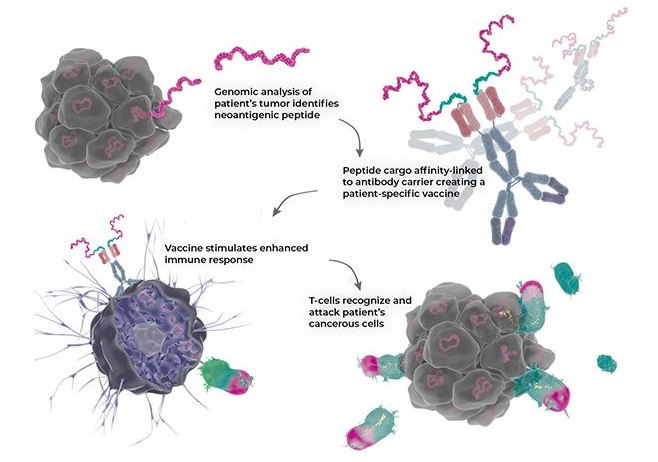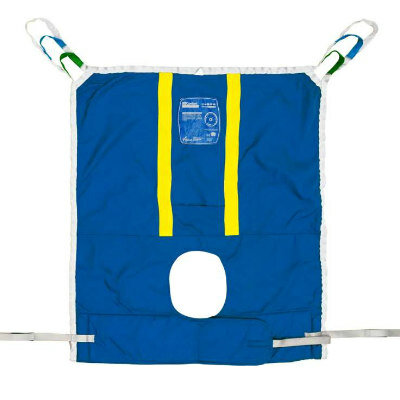New Antibody Could Be Promising Cancer Treatment
|
By HospiMedica International staff writers Posted on 20 Nov 2024 |

Researchers have developed a novel form of precision medicine in the form of an antibody that could potentially treat various types of cancer. This new antibody combines three distinct functions, which work together to significantly enhance the impact of T cells on cancer tumors.
This unique type of antibody developed by researchers at Uppsala University (Uppsala, Sweden) and KTH Royal Institute of Technology (Stockholm, Sweden), is designed with a "3-in-1" approach. It targets the tumor, delivers a drug package directly to the cancer site, and simultaneously activates the immune system for personalized immunotherapy. The antibody works by directing the immune system to detect and target specific mutations, known as neoantigens, that are unique to cancer cells. This is accomplished by the antibody not only delivering tumor-specific material directly to certain immune cells but also stimulating these cells to enhance the T-cell response against the tumor.
The research, published in Nature Communications, demonstrates that this method is effective in multiple ways. It activates the appropriate immune cells in human blood samples, and in animal models, the treatment led to prolonged survival. At higher doses, it even cured mice of cancer, proving to be safer than previous cancer therapies studied by the researchers. While precision medicines are often costly and time-consuming to develop, this study aims to offer a more flexible, quicker, and safer treatment alternative. The findings suggest that this approach can be tailored to individual patients, thereby boosting the immune response to cancer. The next phase of the research involves optimizing the production process for the drug candidate, conducting additional safety studies, and eventually moving to clinical trials in humans.
“The advantage of our drug is that it is easy to produce on a larger scale, yet can be easily tailored to the patient’s disease or specific tumor,” said Johan Rockberg, Professor at KTH Royal Institute of Technology. “The medicine consists of two parts that are combined, a targeting bispecific antibody – which can be produced in large quantities in advance – and a custom peptide part, which is produced rapidly synthetically on a small scale for a desired type of cancer. Both in terms of production cost and the short time it takes to tailor a peptide to a new tumor, this increases availability and should make it quicker for patients to go from diagnosis to treatment.”
Latest Critical Care News
- AI Model Analyzes Patient Data to Diagnose Multiple Sclerosis With 90% Accuracy
- Magnetically Navigable Microparticles Enable Targeted Drug Delivery
- AI-Powered Algorithm Automates Analysis of Coronary Stents After Implantation
- New Stroke Risk Scoring System to Help Avoid Unnecessary Surgeries
- Wearable Device Tracks Individual Cells in Bloodstream in Real Time
- Drug Delivery System Uses Ultrasound-Activated Nanoparticles to Destroy Bacterial Biofilms
- New Potent Injectable Therapy Could Prevent Heart Failure After Heart Attack
- Hospital-Based System Combines AI and Genomic Surveillance to Quickly Detect Infectious Disease Outbreaks
- New Approach to Visualizing Blood Pressure Data Can Help Better Manage Hypertension Patients
- Breakthrough AI Technology Accurately Assesses Heart Failure Severity
- Smart Bandage Monitors Chronic Wounds in Human Patients
- AI Identifies Patients with Increased Lung Cancer Risk Up To 4 Months Earlier
- Next Gen Hemodynamic Monitoring Solution Provides AI-Driven Clinical Decision Support
- AI Algorithm Identifies High-Risk Heart Patients
- Wearable Glucose Monitor Offers Less Invasive Approach to Assessing Diabetes Risk
- Wireless, Self-Powered Smart Insole to Improve Personal Health Monitoring
Channels
Surgical Techniques
view channel
DNA Origami Improves Imaging of Dense Pancreatic Tissue for Cancer Detection and Treatment
One of the challenges of fighting pancreatic cancer is finding ways to penetrate the organ’s dense tissue to define the margins between malignant and normal tissue. Now, a new study uses DNA origami structures... Read more
Pioneering Sutureless Coronary Bypass Technology to Eliminate Open-Chest Procedures
In patients with coronary artery disease, certain blood vessels may be narrowed or blocked, requiring a stent or a bypass (also known as diversion) to restore blood flow to the heart. Bypass surgeries... Read more
Intravascular Imaging for Guiding Stent Implantation Ensures Safer Stenting Procedures
Patients diagnosed with coronary artery disease, which is caused by plaque accumulation within the arteries leading to chest pain, shortness of breath, and potential heart attacks, frequently undergo percutaneous... Read more
World's First AI Surgical Guidance Platform Allows Surgeons to Measure Success in Real-Time
Surgeons have always faced challenges in measuring their progress toward surgical goals during procedures. Traditionally, obtaining measurements required stepping out of the sterile environment to perform... Read morePatient Care
view channel
Portable Biosensor Platform to Reduce Hospital-Acquired Infections
Approximately 4 million patients in the European Union acquire healthcare-associated infections (HAIs) or nosocomial infections each year, with around 37,000 deaths directly resulting from these infections,... Read moreFirst-Of-Its-Kind Portable Germicidal Light Technology Disinfects High-Touch Clinical Surfaces in Seconds
Reducing healthcare-acquired infections (HAIs) remains a pressing issue within global healthcare systems. In the United States alone, 1.7 million patients contract HAIs annually, leading to approximately... Read more
Surgical Capacity Optimization Solution Helps Hospitals Boost OR Utilization
An innovative solution has the capability to transform surgical capacity utilization by targeting the root cause of surgical block time inefficiencies. Fujitsu Limited’s (Tokyo, Japan) Surgical Capacity... Read more
Game-Changing Innovation in Surgical Instrument Sterilization Significantly Improves OR Throughput
A groundbreaking innovation enables hospitals to significantly improve instrument processing time and throughput in operating rooms (ORs) and sterile processing departments. Turbett Surgical, Inc.... Read moreHealth IT
view channel
Printable Molecule-Selective Nanoparticles Enable Mass Production of Wearable Biosensors
The future of medicine is likely to focus on the personalization of healthcare—understanding exactly what an individual requires and delivering the appropriate combination of nutrients, metabolites, and... Read more
Smartwatches Could Detect Congestive Heart Failure
Diagnosing congestive heart failure (CHF) typically requires expensive and time-consuming imaging techniques like echocardiography, also known as cardiac ultrasound. Previously, detecting CHF by analyzing... Read moreBusiness
view channel
Expanded Collaboration to Transform OR Technology Through AI and Automation
The expansion of an existing collaboration between three leading companies aims to develop artificial intelligence (AI)-driven solutions for smart operating rooms with sophisticated monitoring and automation.... Read more















